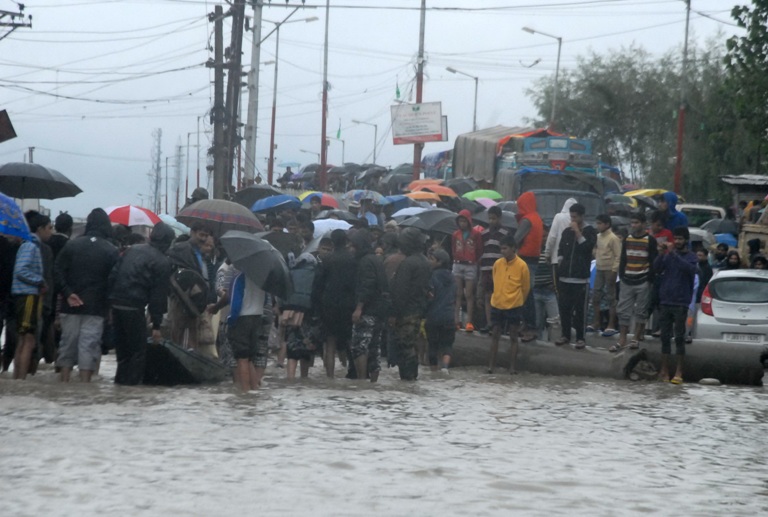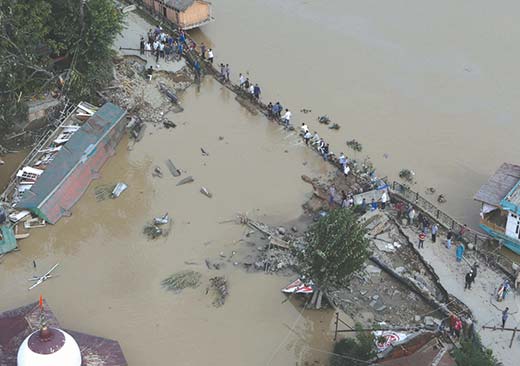SRINAGAR: A huge crowd gathered to mark the fourth anniversary of the 2020 killing of General Qasem Soleimani in Kerman, Iran, faced a devastating attack that resulted in the death of at least 103 people and left 141 others injured. The explosions unfolded near the gravesite of Soleimani, the erstwhile head of the Revolutionary Guard’s elite Quds Force, located about 820 kilometres southeast of the capital, Tehran, reports appearing in the international media said.
Rahman Jalali, the deputy governor of Kerman province, where Soleimani is interred, has labelled the incident as a “terrorist attack,” emphasising the gravity of the situation. The timing of the blasts added to the region’s already heightened tensions, with the recent killing of Hamas official Saleh al-Aruri in a Beirut drone strike, an event Lebanese officials attributed to Israel.
Iran’s Tasnim news agency reported that informed sources revealed that “two bags carrying bombs went off” at the site. The modus operandi suggested a remote-controlled detonation, raising concerns about the sophistication and premeditation behind the attack. ISNA news agency quoted Kerman mayor Saeed Tabrizi, stating that the bombs exploded approximately 10 minutes apart, indicating a potentially coordinated strategy.
Soleimani, a pivotal figure in Iran’s military landscape, met his demise in a US drone strike in Iraq in January 2020. His death sparked widespread mourning and protests, marking him as a national icon among supporters of Iran’s theocracy. Soleimani’s funeral procession in 2020 turned tragic, witnessing a stampede that claimed the lives of at least 56 people, with over 200 others sustaining injuries as thousands gathered to pay their respects.
The identity of the perpetrators behind the recent attack in Kerman remains unknown, with no group claiming responsibility. The use of remote-controlled bombs suggests a calculated effort to maximise casualties, as a delayed second explosion is a tactic often employed to target emergency responders and exacerbate the human toll.
This coincided with the execution of three men and one woman who were convicted for their alleged links to Israel’s Mossad spy agency, al-Jazeera reported.
“Four members of a sabotage group related to the Zionist regime were hanged this morning” in Iran’s northwestern province of West Azerbaijan, the judiciary’s Mizan news agency reported on Friday.
Mizan identified those executed as three men – Vafa Hanareh, Aram Omari and Rahman Parhazo and one woman, Nasim Namazi, who were sentenced to death on charges of “moharebeh”, an Islamic legal term meaning “waging war against God”, and “corruption on Earth” through their “collaboration with the Zionist regime”, referring to Israel.















